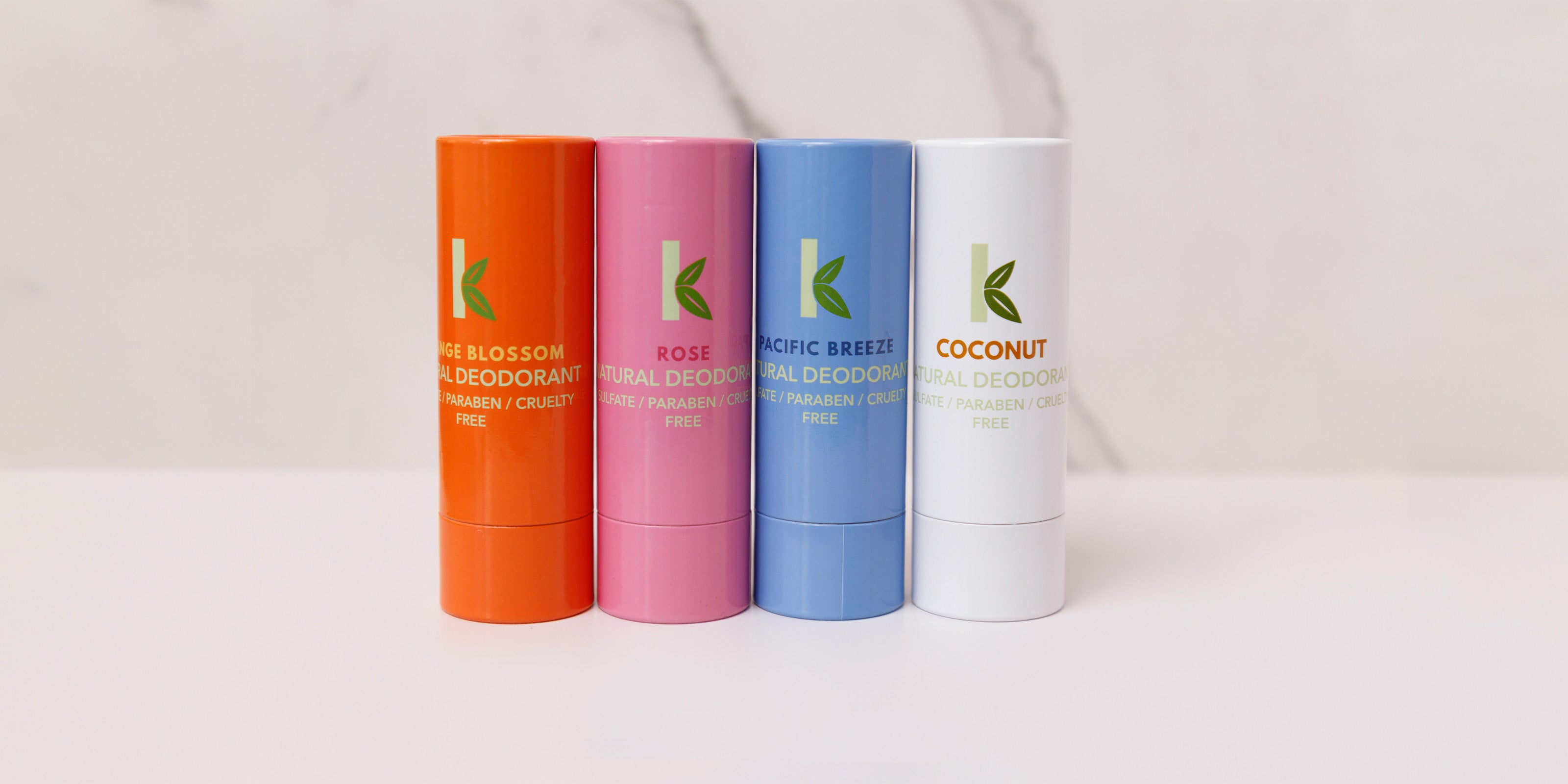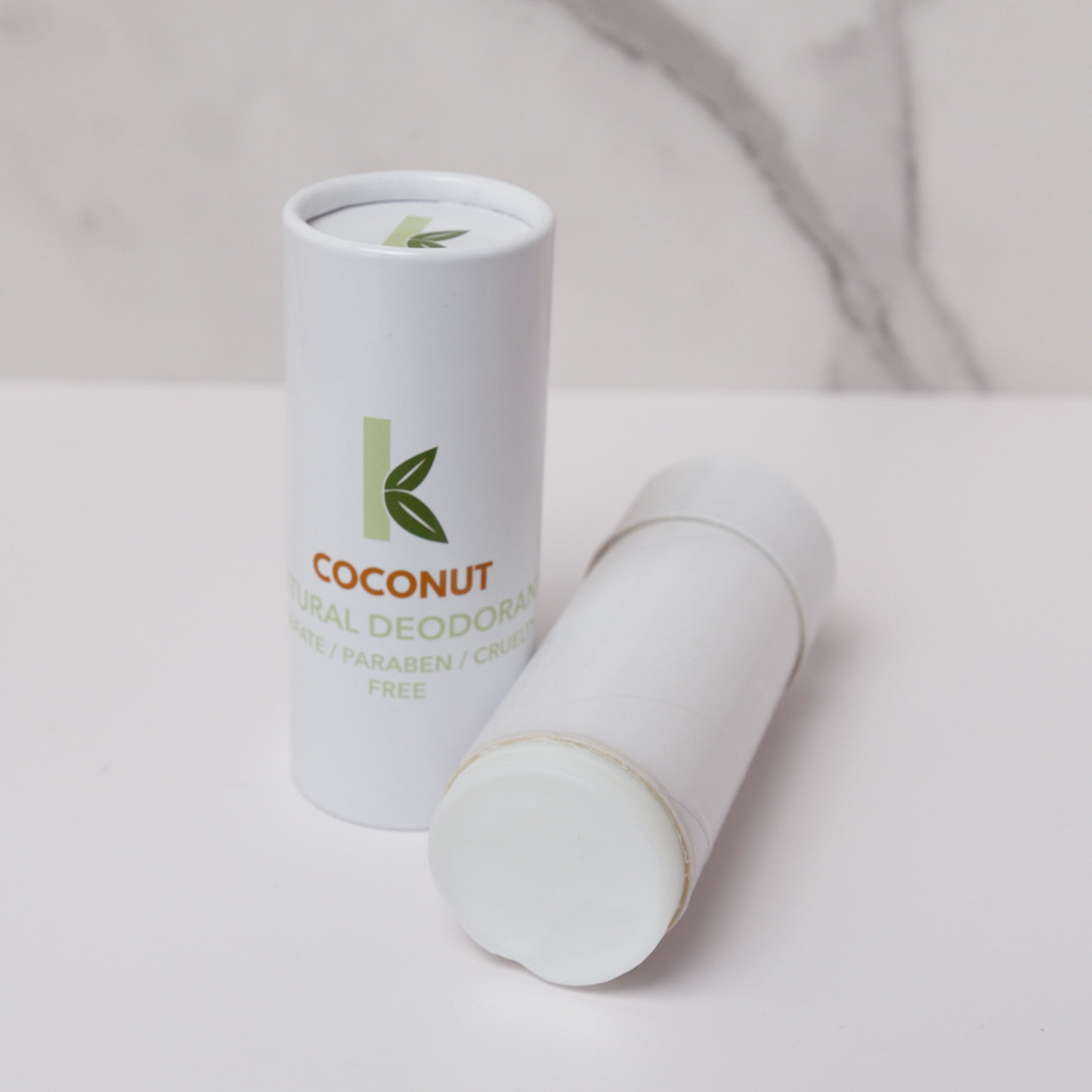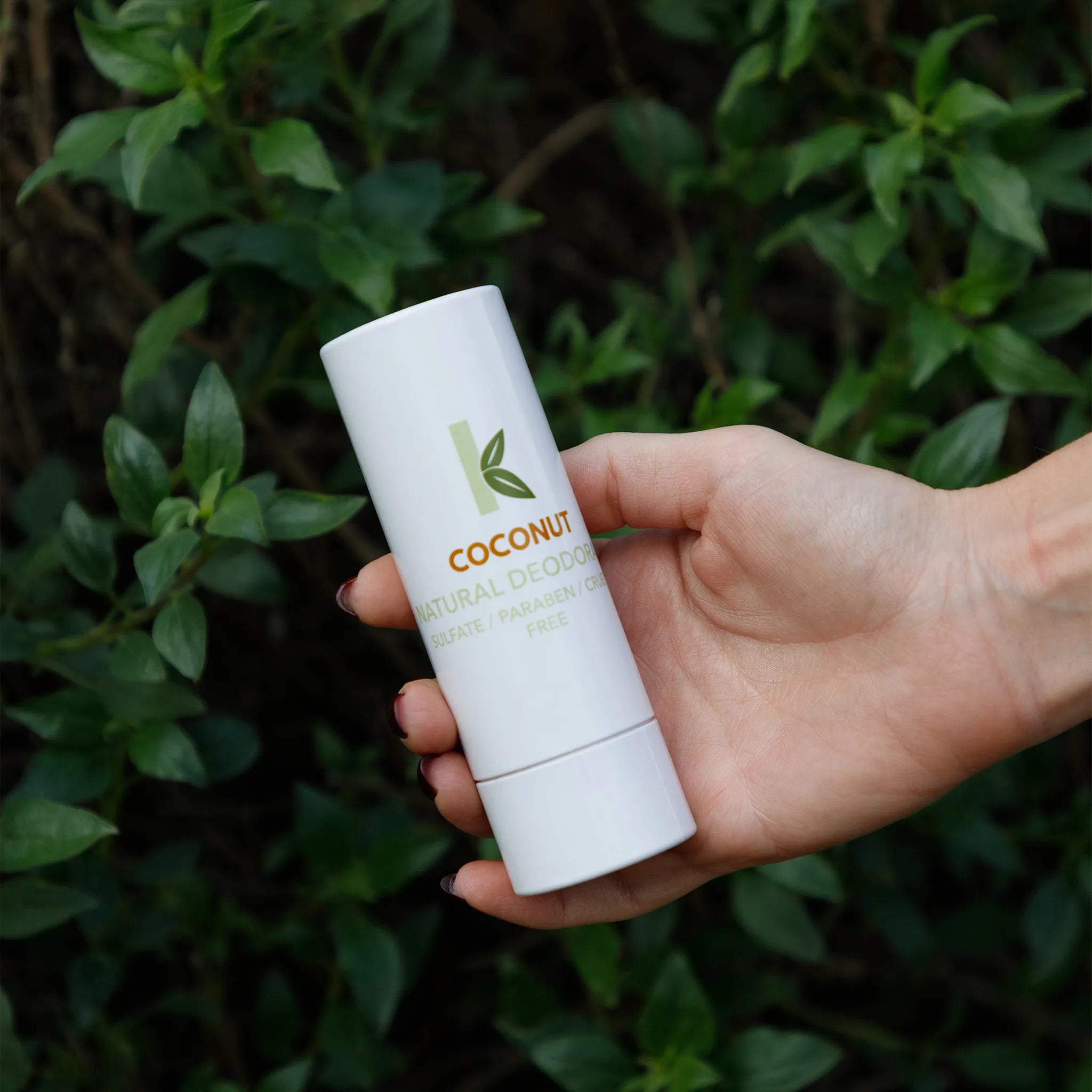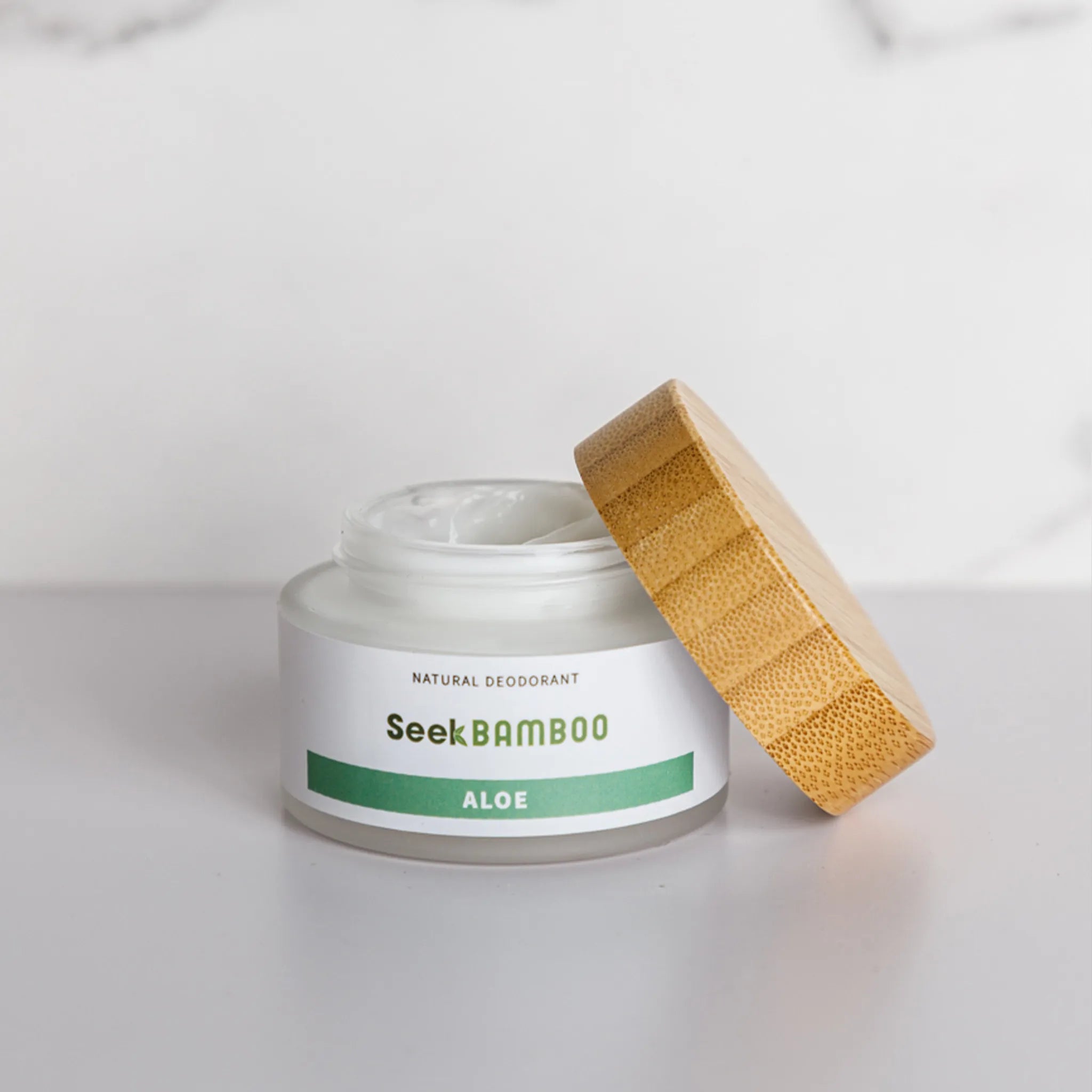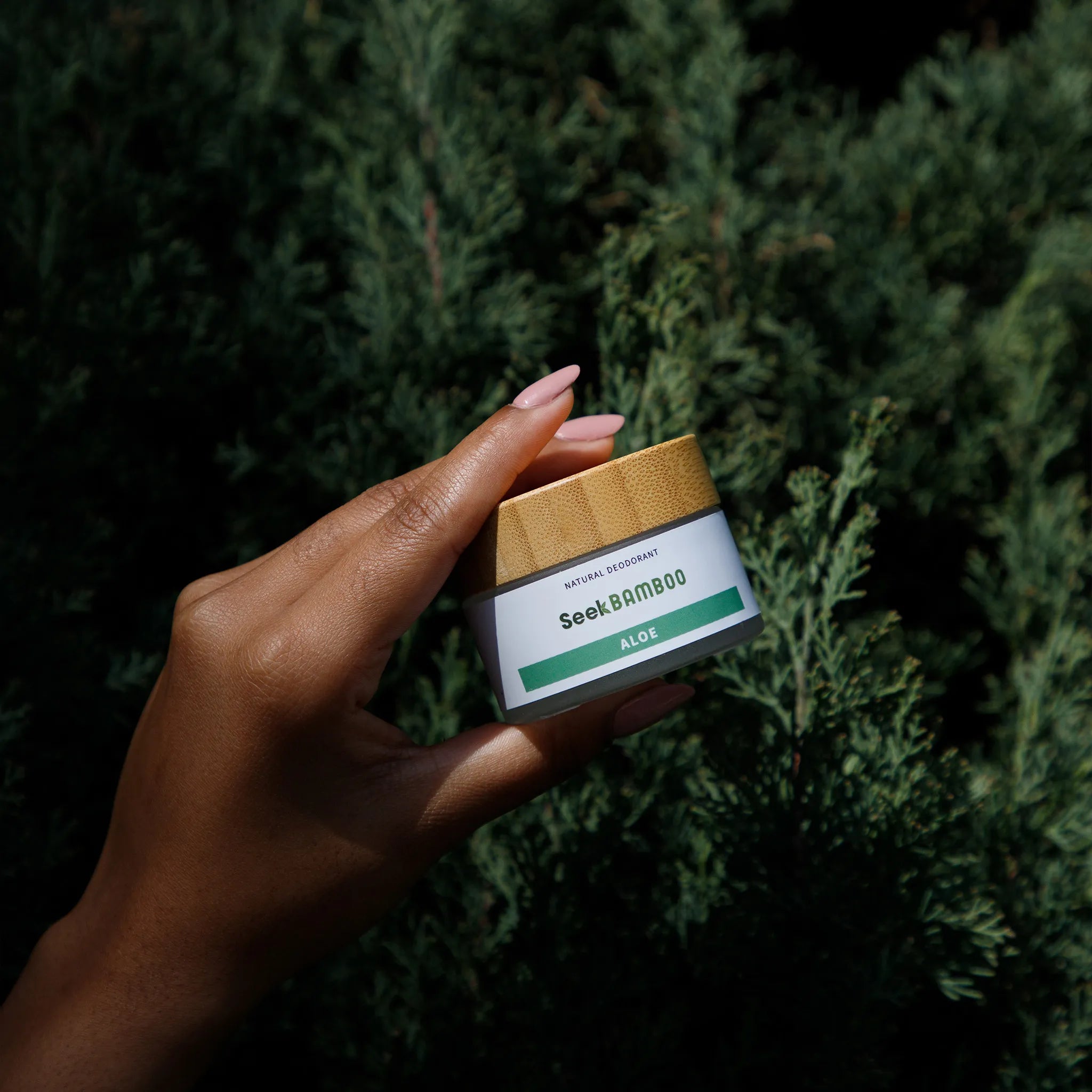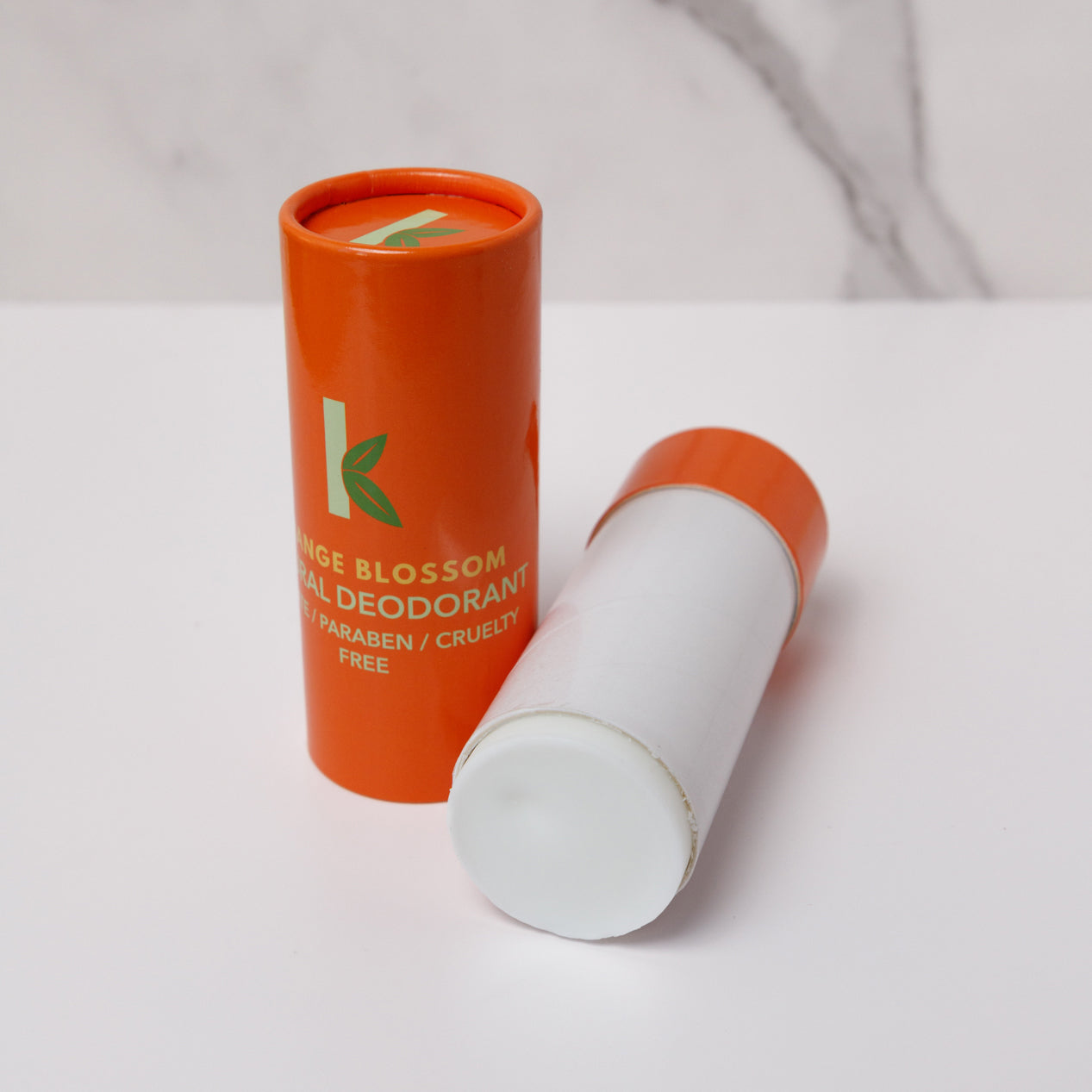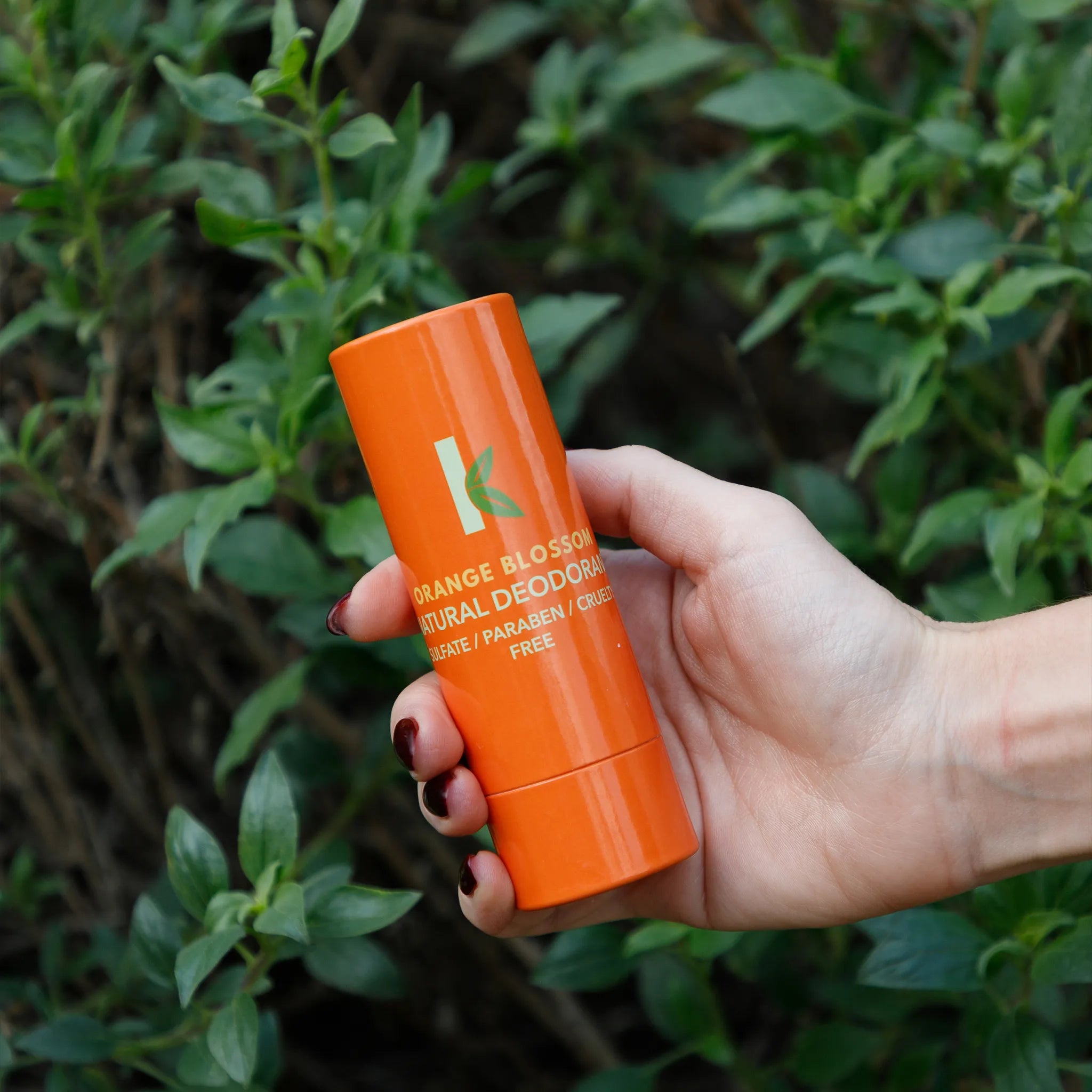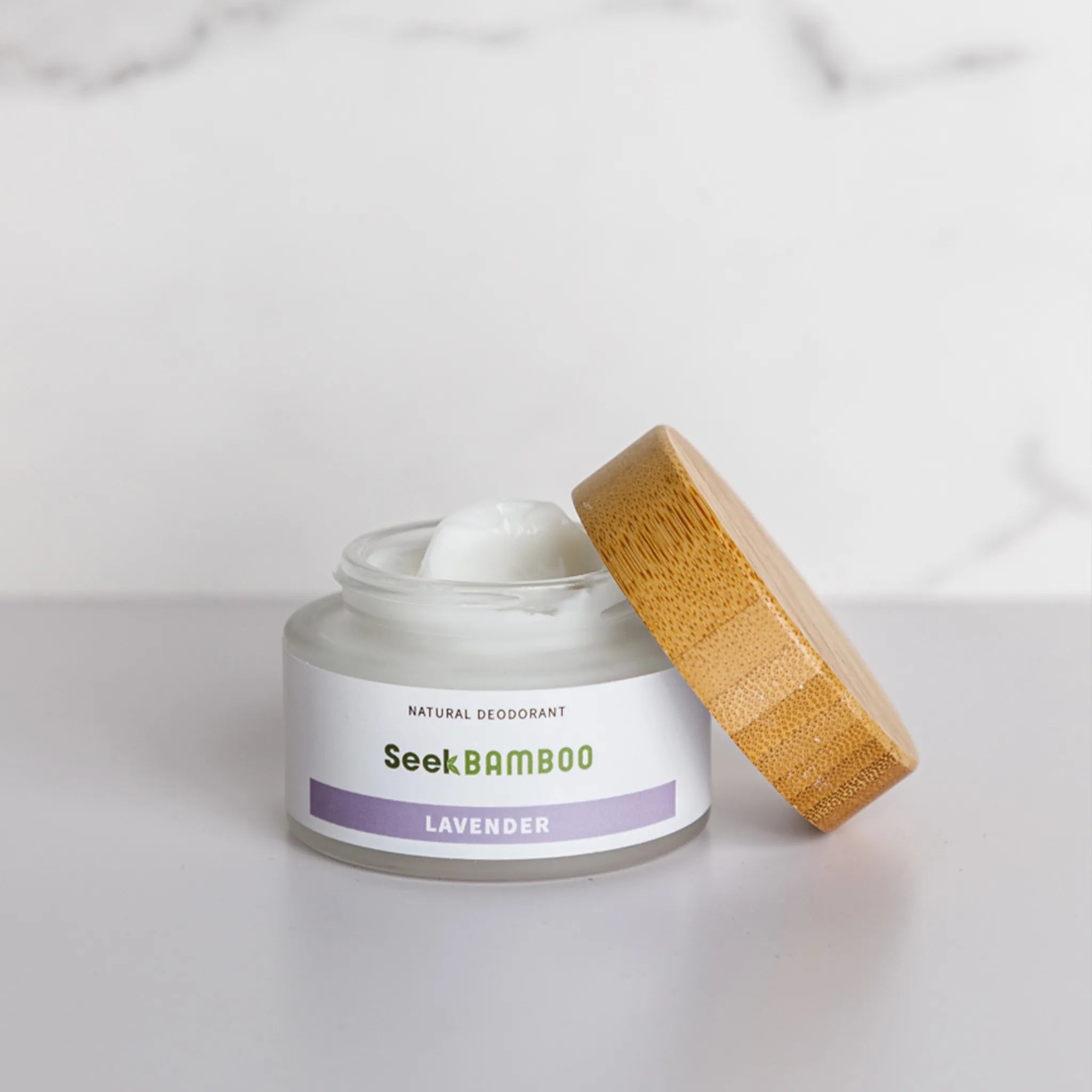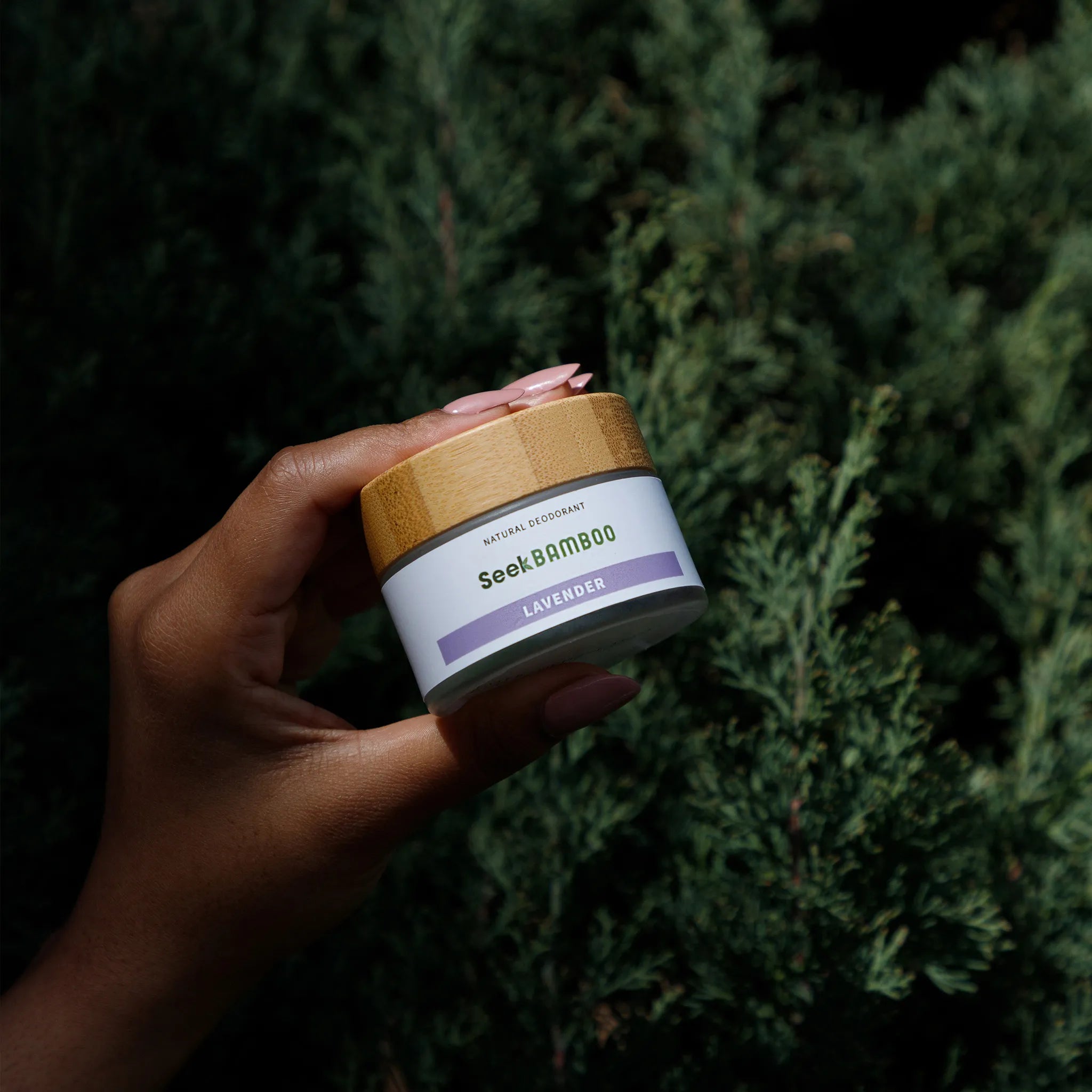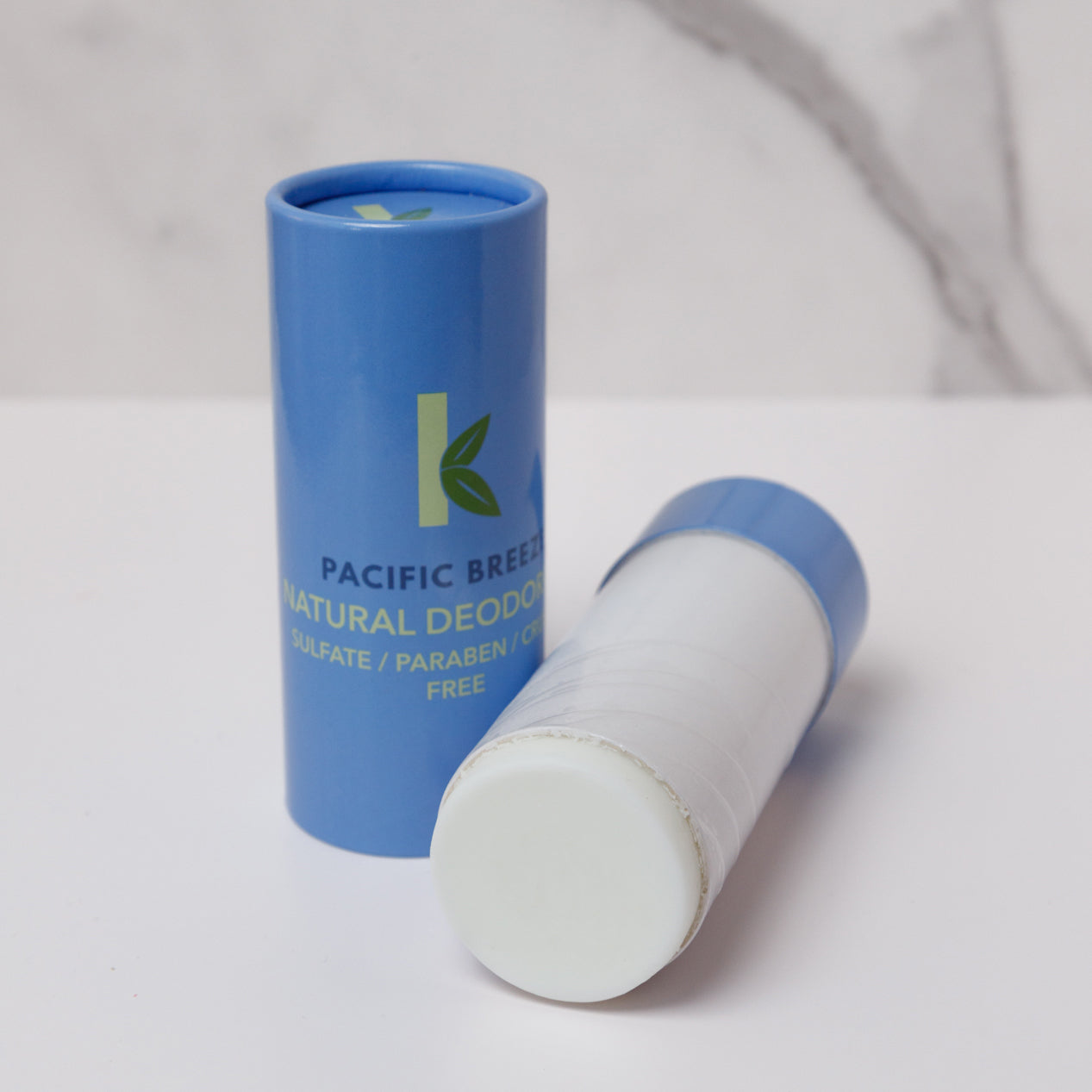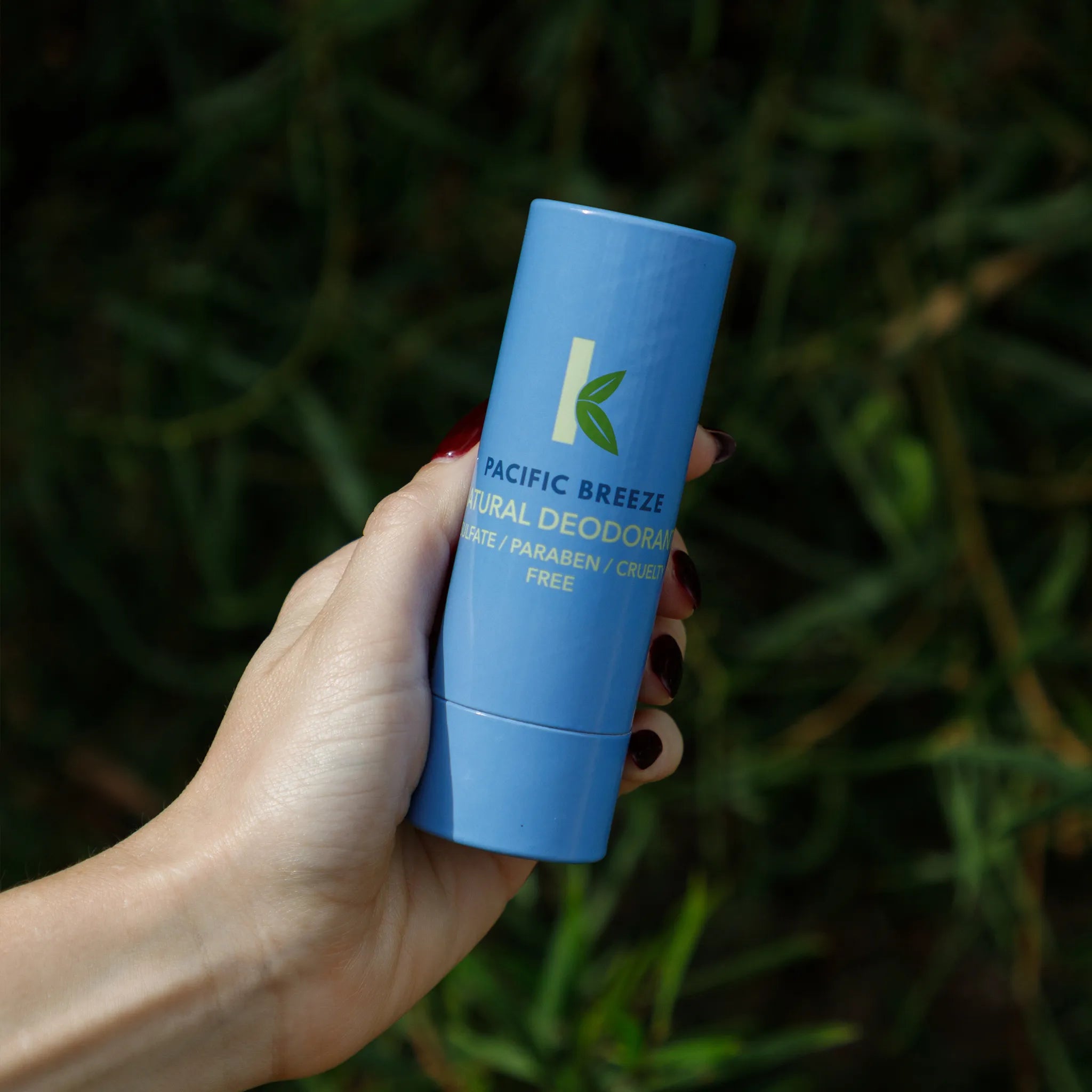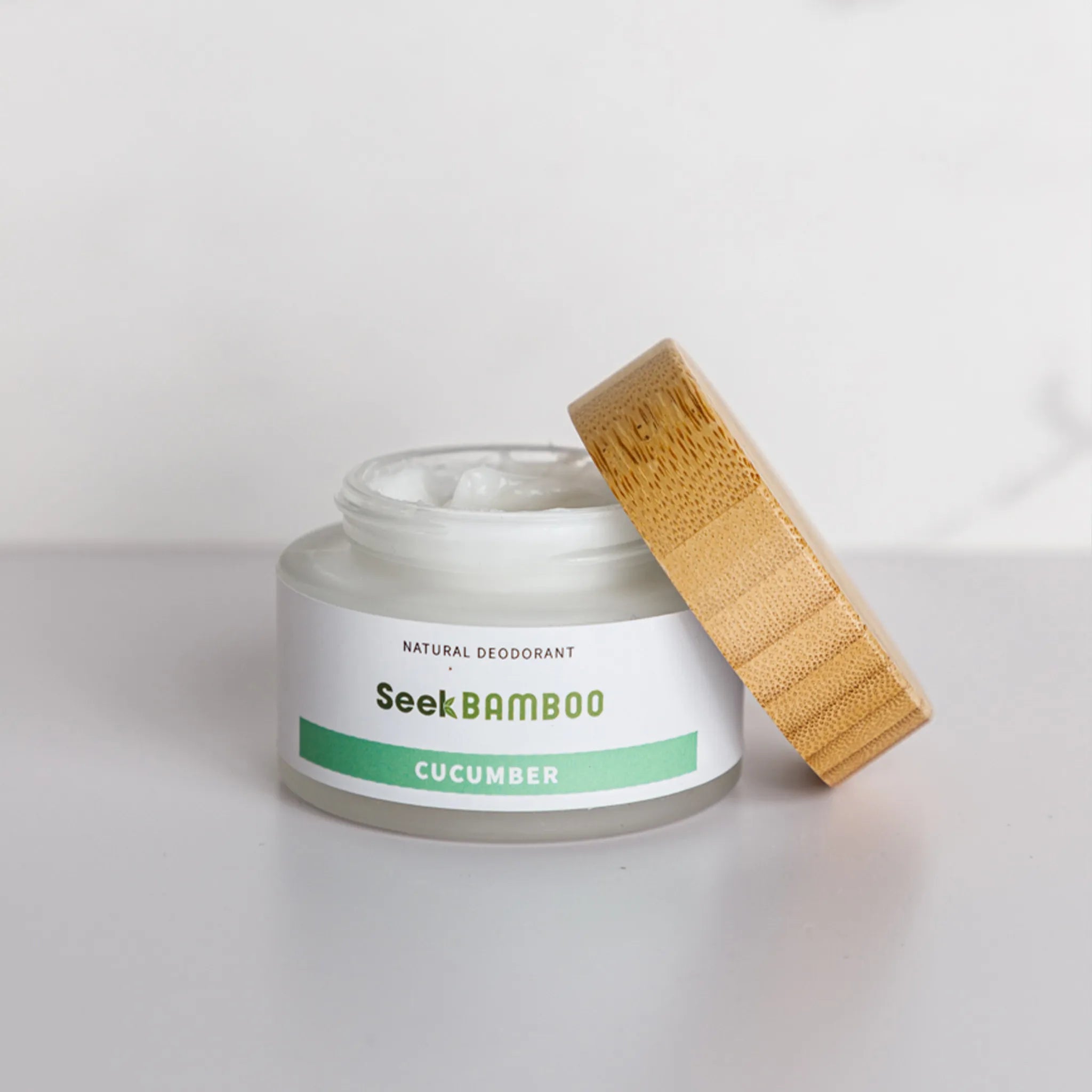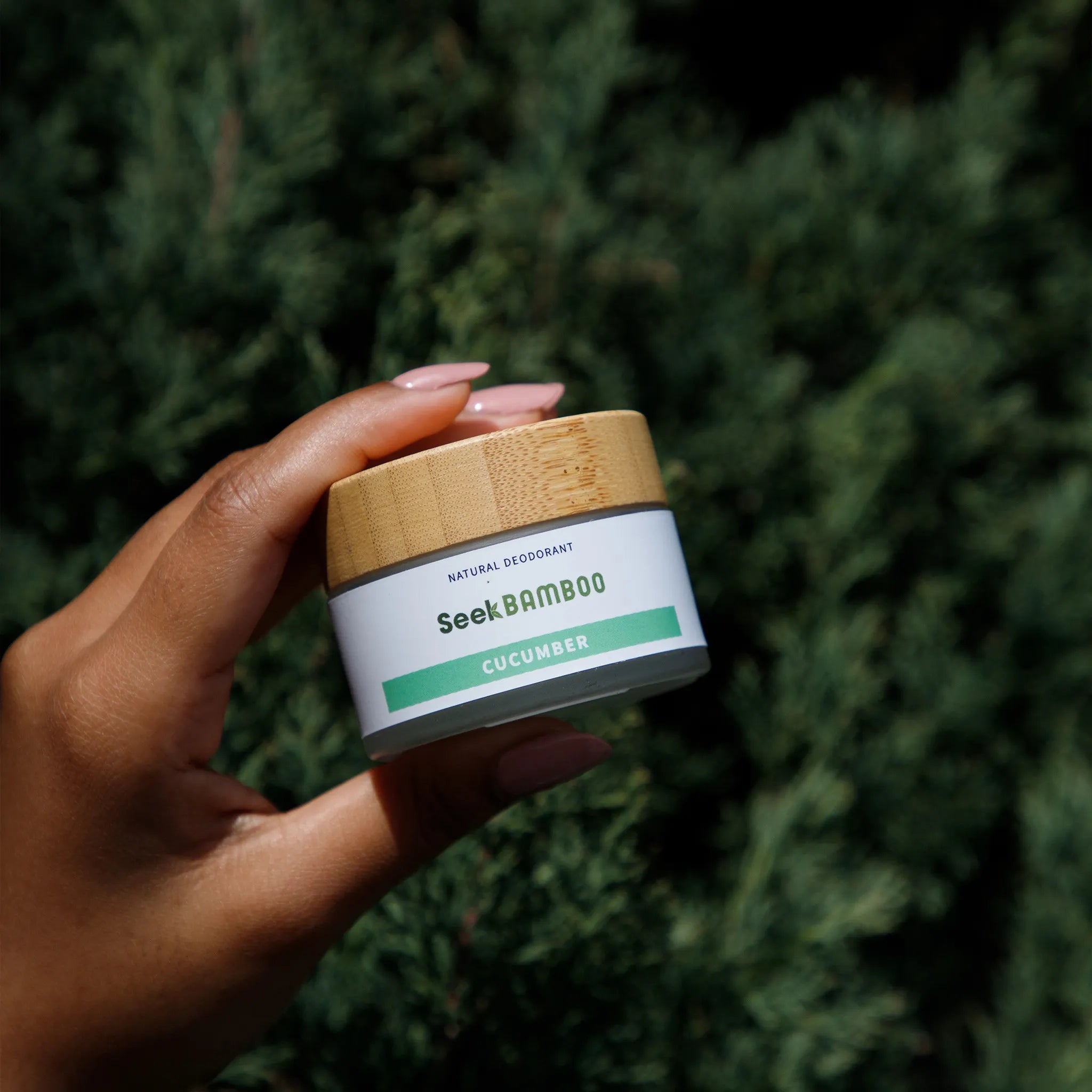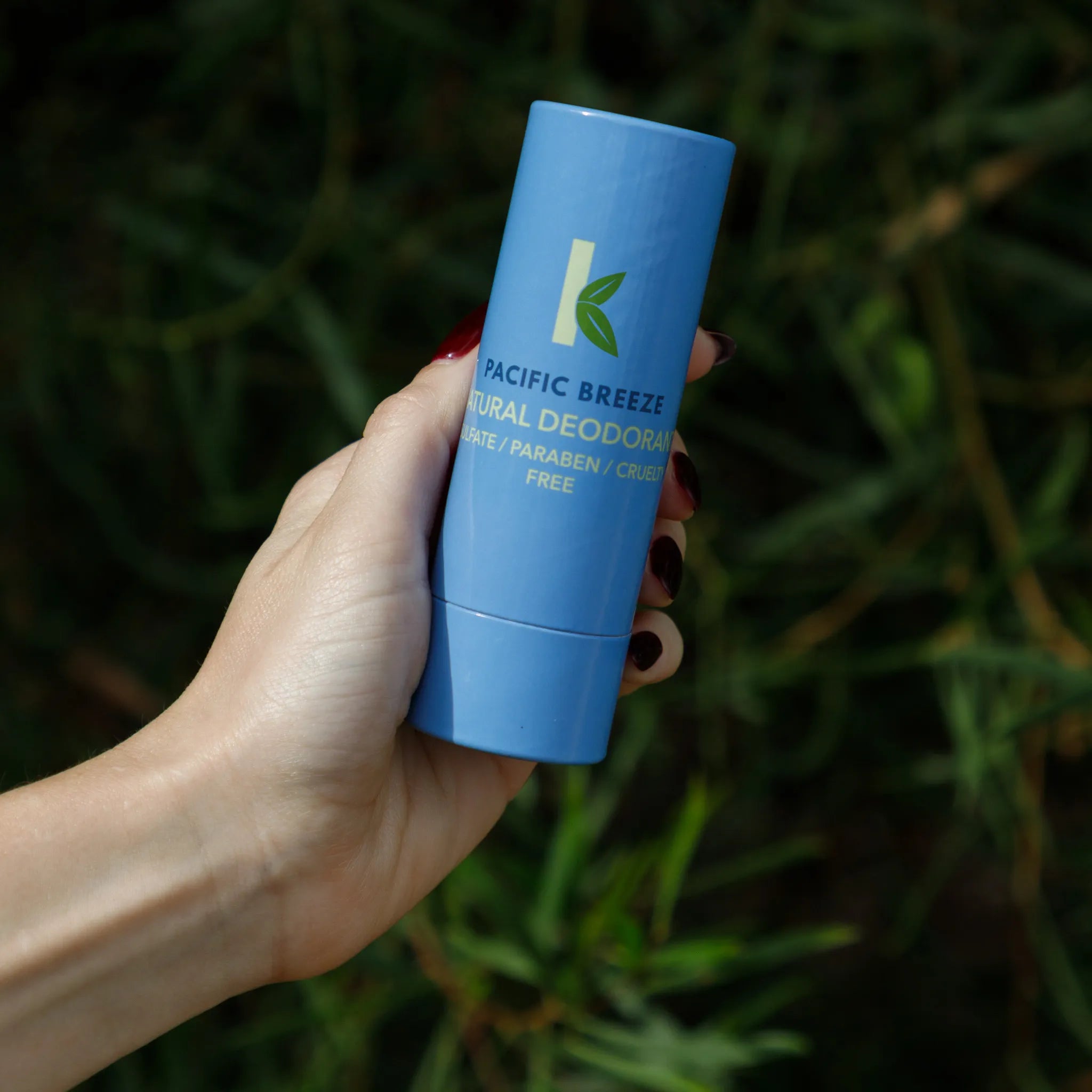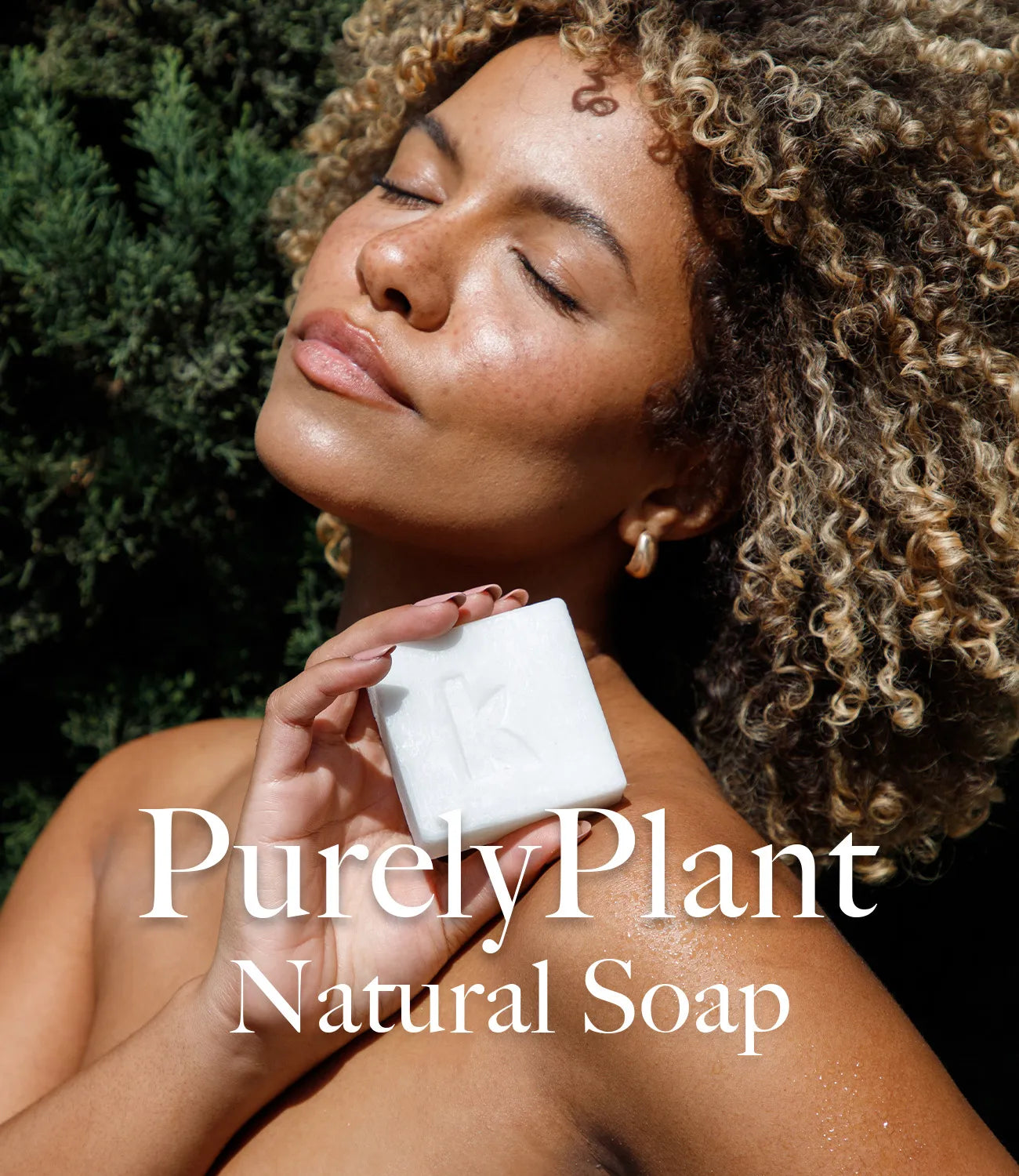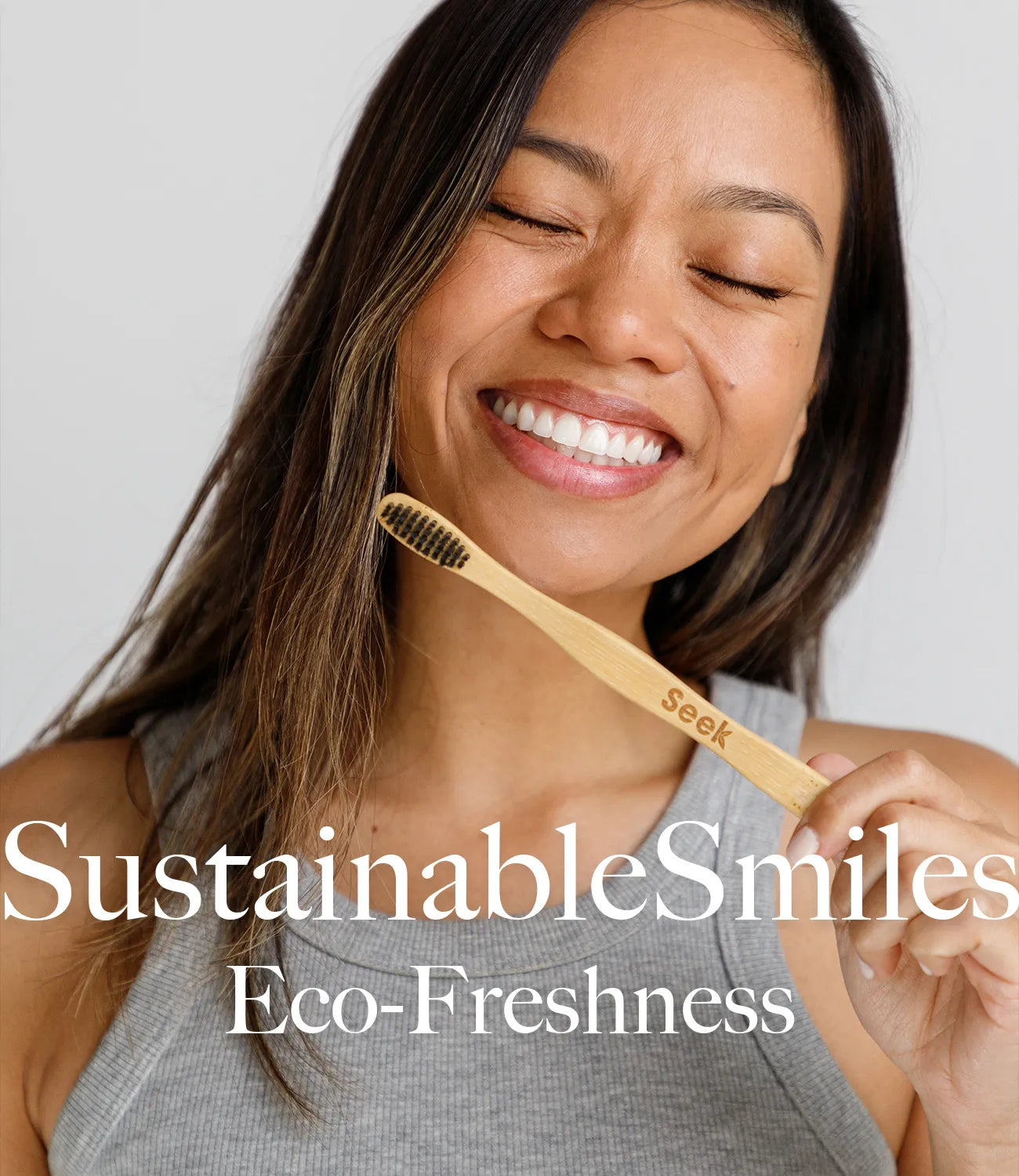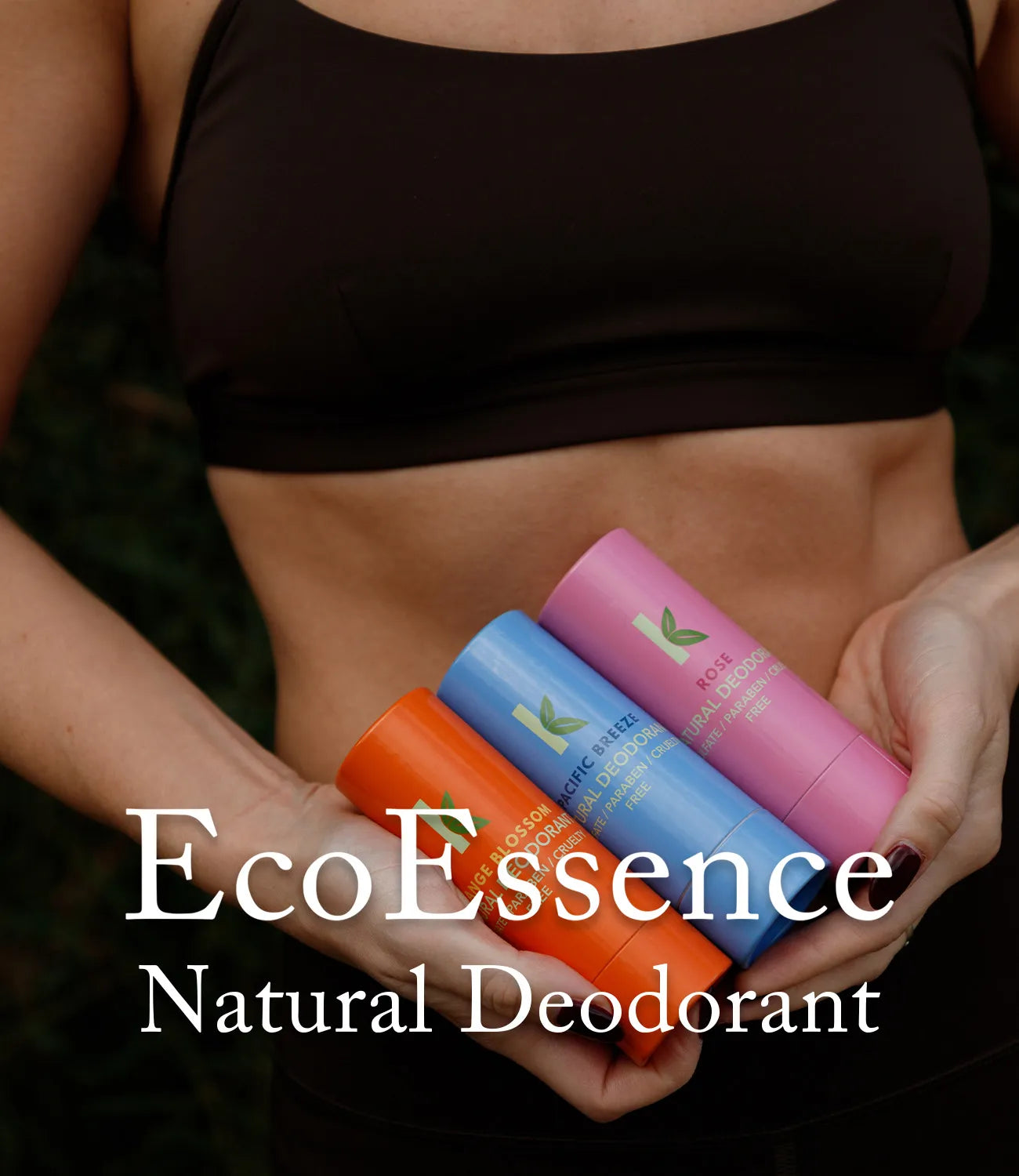Have you ever pondered the shelf life of your deodorant? In the world of all-natural, plastic-free deodorant creams and sticks, understanding expiration is more than just a date on a package – it's about efficacy, safety, and environmental responsibility. Our blog dives deep into the nuances of deodorant expiration, especially for eco-conscious products like ours. We'll explore how natural ingredients fare over time compared to their synthetic counterparts, and what signs indicate it's time to bid your deodorant farewell. But it's not all about goodbyes; we'll also guide you on how to properly store these natural wonders to extend their life, and the role of plastic-free packaging in maintaining product integrity. Furthermore, we're debunking myths about natural deodorants' longevity, offering insights into the perfect eco-friendly choice for your lifestyle, and discussing the impact of your choices on our beloved planet. As we embark on this aromatic journey, let's unravel the truths about natural deodorant expiration and how, by choosing wisely, we can contribute to a healthier body and a greener world.
Understanding Deodorant Shelf Life?
Understanding deodorant expiration is key to ensuring you're getting the most out of your personal care products, particularly when it comes to natural versus synthetic ingredients. The expiration of a deodorant signifies the point beyond which its effectiveness and safety are no longer guaranteed by the manufacturer. Natural deodorants, like our eco-friendly, plastic-free varieties, often have a shorter shelf life compared to their synthetic counterparts. This is due to the absence of artificial preservatives, which, while prolonging shelf life in synthetic deodorants, can introduce unwanted chemicals to your body and the environment. Natural deodorants rely on organic ingredients that, though gentler and more environmentally sound, are more susceptible to breakdown and loss of efficacy over time. Identifying when your deodorant is past its prime is crucial in the realm of natural products. Telltale signs include a noticeable change in texture – perhaps it's become unusually hard, soft, or crumbly – or an alteration in scent, which may become either fainter or slightly off. Additionally, if you find that your deodorant is no longer as effective in controlling odor or causes any skin irritation, these are clear indicators that it's time to replace it. By staying alert to these signs and understanding the nuances of deodorant expiration, you can ensure that your choice in body care remains both effective and in harmony with your eco-conscious lifestyle.
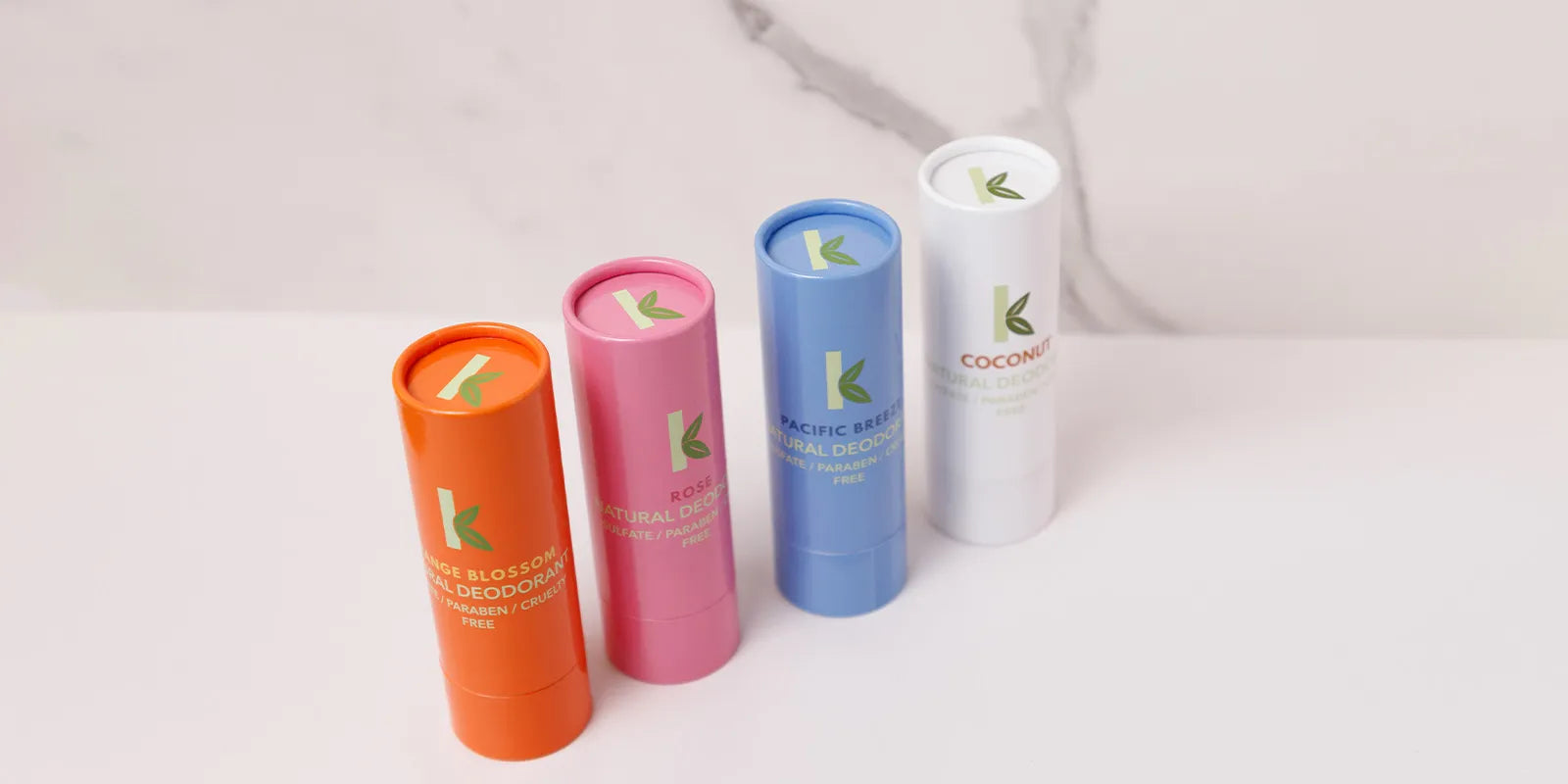
Preserving Your Eco-Deodorant
Proper storage and thoughtful packaging play pivotal roles in maximizing the shelf life and effectiveness of natural deodorant creams and sticks. For these eco-friendly products, the key to longevity lies in how they are stored and protected. Storing your natural deodorant in a cool, dry place, away from direct sunlight and moisture, is essential. Excessive heat can cause the deodorant to soften and lose its form, while humidity can invite bacterial growth, especially in products free from synthetic preservatives. Equally important is the impact of packaging on product longevity. Our commitment to plastic-free packaging not only aligns with environmental sustainability but also influences the shelf life of our natural deodorants. Unlike plastic containers, which can offer an airtight seal but at the cost of environmental harm, our eco-friendly packaging is designed to minimize exposure to air and light while being biodegradable. However, this means that the barrier against external elements might not be as robust as in synthetic counterparts, making careful storage even more crucial. By keeping the deodorant in its original packaging and ensuring it is properly closed after each use, you can significantly extend its efficacy and enjoy its benefits for a longer period. Thus, the synergy of mindful storage and sustainable packaging not only helps maintain the quality of your natural deodorant but also upholds the ethos of an environmentally conscious lifestyle.
Sustainable Deodorant Disposal
When it comes to eco-friendly disposal of expired deodorant, especially our natural, plastic-free products, it’s not just about discarding responsibly but also about exploring creative repurposing possibilities. Once your natural deodorant has reached its expiration and is no longer effective for its intended use, consider environmentally conscious disposal methods. For deodorants in biodegradable packaging, such as cardboard or paper-based materials, composting is an excellent option. The packaging can be broken down and added to your compost pile, contributing to nutrient-rich soil. If the deodorant comes in a reusable container, like a glass jar or metal tin, these can be thoroughly cleaned and repurposed for storing small items, homemade cosmetics, or even as small planters for your herb garden. In the spirit of minimizing waste, consider creative repurposing ideas for the expired deodorant itself. Expired deodorant sticks, for instance, can be used as a lubricant for squeaky door hinges or to ease the glide of sticky drawers. However, it’s crucial to ensure that the expired product is safe and non-irritant for such uses. If repurposing isn’t viable, ensure that any non-compostable components are disposed of according to your local recycling guidelines. By approaching the end-of-life of your deodorant products with a mindset geared towards sustainability and resourcefulness, not only do you contribute to reducing waste, but you also embrace the full cycle of eco-friendly living, right from purchase to disposal.
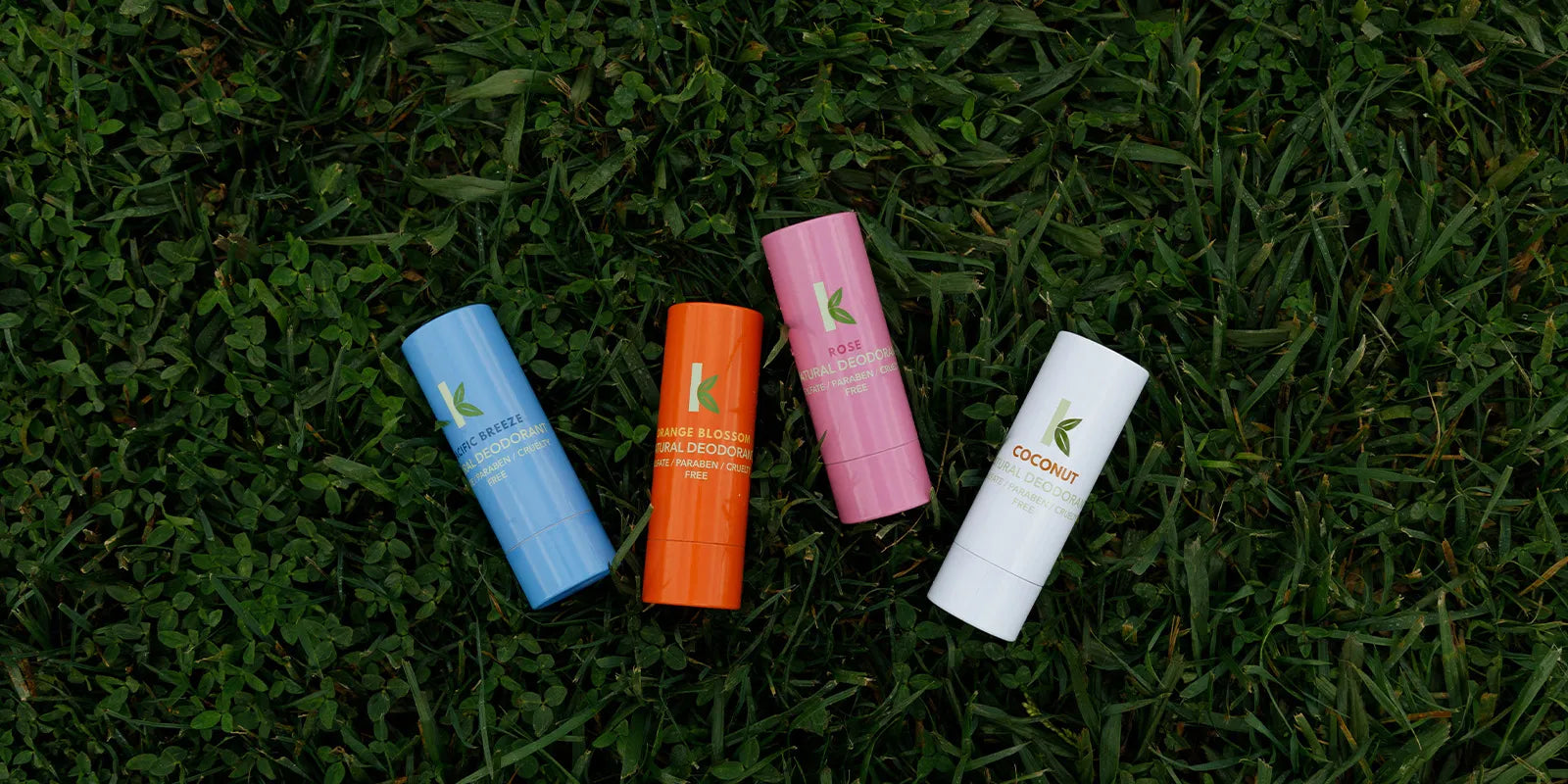
Natural Deodorant: Myths vs Facts
In the realm of natural deodorants, myths often swirl around their expiration and efficacy, leading to misconceptions that can cloud consumer judgment. One common myth is that natural deodorants, without synthetic preservatives, don't expire at all. This is a fallacy; in reality, natural deodorants do have a shelf life, typically ranging from 6 months to a year. Their natural composition, free from chemicals like parabens and aluminum, means they rely on more organic and perishable ingredients, which naturally degrade over time. Another widespread belief is that expired natural deodorants are harmful to use. While it's true that using these products past their prime isn’t as effective, they're generally not harmful. Unlike their synthetic counterparts, natural deodorants don’t contain ingredients that turn toxic after expiration. However, they may lose their potency in odor control or cause mild skin irritation due to the breakdown of natural oils and ingredients. Additionally, some think that storing natural deodorant in the fridge extends its life. While cooler temperatures can help maintain the product's consistency, they don't significantly prolong its efficacy against odor. Understanding these facts is crucial for consumers who prefer natural deodorants, as it encourages proper usage and realistic expectations of product performance, ensuring a satisfactory and safe experience in their journey towards eco-friendly living.
Plastic-Free, Planet-Friendly
In the journey towards a more sustainable and health-conscious lifestyle, choosing natural, plastic-free deodorant stands out as a significant step. The benefits of these eco-friendly alternatives extend far beyond personal health, contributing profoundly to environmental well-being. Unlike traditional deodorants, which often contain chemicals like aluminum and parabens, natural deodorants use ingredients that are kinder to your skin and free from synthetic irritants. This means a lower risk of skin issues and a more harmonious relationship with your body’s natural processes. Moreover, the plastic-free aspect of these deodorants addresses a critical environmental concern – plastic waste. Traditional deodorants are frequently packaged in single-use plastics, contributing to the ever-growing problem of plastic pollution. By opting for natural deodorants in biodegradable or reusable packaging, not only do you reduce your personal carbon footprint, but you also play a part in tackling the global issue of plastic waste. This conscious choice supports a cleaner, healthier planet, as less plastic means fewer toxins released into our ecosystems and a significant step towards reducing landfill waste. In essence, when you choose natural, plastic-free deodorant, you're not just making a choice for your health; you're making a choice for the Earth. It's a small change in your daily routine that can have a large impact on our planet, embodying the principle that every action, no matter how small, counts in our collective journey towards a more sustainable future.
Sniffing Out the Truth
Understanding the Timeline of Your Deodorant
Does deodorant expire?
Yes, deodorants do expire. The expiration date indicates when the active ingredients, particularly in natural deodorants, are at their most effective. After this date, the product may not work as well in preventing odor or may become less pleasant to use. The shelf life typically varies based on the ingredients used. For instance, natural deodorants, like our plastic-free deodorant cream and stick, usually have a shorter lifespan compared to their synthetic counterparts due to the absence of preservatives.
How can I tell if my deodorant has expired?
Mint shampoo is generally suitable for most hair types, but it's especially beneficial for those with oily or dandruff-prone scalps.
Can mint shampoo help with dandruff?
Yes, mint shampoo can help alleviate dandruff as it has antimicrobial properties that combat the fungi responsible for dandruff.
What is the typical shelf life of a natural deodorant?
The average shelf life of a natural deodorant can range from 6 months to a year. This can vary based on the specific formulation, the types of natural ingredients used, and how the product is stored. Our plastic-free deodorant cream and stick, for instance, are formulated to maximize shelf life while maintaining the integrity of natural ingredients.
How should I store my natural deodorant to extend its shelf life?
To extend the shelf life of your natural deodorant, store it in a cool, dry place away from direct sunlight and moisture. This helps to maintain the consistency of the product and prevent the degradation of natural ingredients. Also, ensure that the lid or cap is tightly sealed when not in use to protect it from air exposure.
Are there any risks in using expired deodorant?
While using expired deodorant, especially a natural one, is typically not harmful, it may not be as effective in controlling odor or may cause skin irritation due to the breakdown of ingredients. If you have sensitive skin, it's particularly important to use a deodorant within its intended shelf life to avoid potential skin issues.
Why do natural deodorants have a shorter shelf life than synthetic ones?
Natural deodorants typically have a shorter shelf life because they are free from synthetic preservatives, which are often used in conventional deodorants to extend their longevity. Natural ingredients, although healthier and more eco-friendly, are more prone to degradation over time. This makes the shelf life of products like our plastic-free deodorant cream and stick shorter but also safer and more environmentally friendly.
Plastic Free Deodorant

Sweat It Out: The Benefits of Using Natural Deodorants
Sweat gets an unclean rap. When we hear the word "sweat," we often think of locker rooms and teenagers who struggle to maintain their hygiene. We tend to think of sweat as something smelly that...


